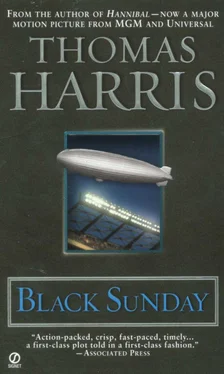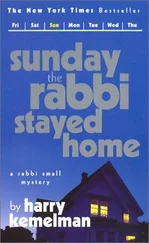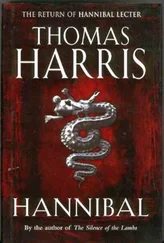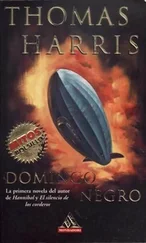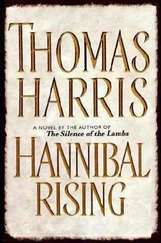“It’s oh-two hundred Zulu all over the world, my friend,” Kabakov said. “We never close. Get that cable out.”
A cold December drizzle stung Moshevsky’s face and neck as he waited on the corner to flag a cab. He let three Dodges pass and finally spotted what he was looking for, a big Checker barging through the morning rush. He wanted the extra room so Kabakov would not have to bend his sore leg. Moshevsky told the driver to stop in front of Rachel’s apartment building in the middle of the block. Kabakov hobbled out and climbed in beside him. He gave the address of the Israeli consulate.
Kabakov had rested as Rachel prescribed. Now he would roll. He could have called Ambassador Tell from the apartment but his business required the safest of telephones—one equipped with a scrambler. He had decided to ask Tel Aviv to suggest that the U.S. State Department approach the Russians for help. Kabakov’s request must be cleared through Tell. Going to the Russians was not a pleasant thought from the standpoint of his professional pride. At the moment, Kabakov could not afford professional pride. He knew that and accepted it, but he did not like it.
Since the spring of 1971, the Soviet Komitet Gosudarstven noy Bezopastveny, the infamous KGB, has had a special section providing technical assistance to Black September through Al Fatah field intelligence. This was the source Kabakov wanted to tap.
He knew the Russians would never help Israel, but in light of the new East-West detente, he thought they might cooperate with the United States. The request to Moscow must come from the Americans, but Kabakov could not suggest the move without the approval of Tel Aviv. Precisely because he hated so much to ask, he would sign the message to Tel Aviv himself, instead of putting the primary responsibility on Tell.
Kabakov decided to swear that the plastic was Russian, whether it was or not. Maybe the Americans would swear to it, too. That ought to put the onus on the Russians.
Why such a large quantity of explosives? Did the amount signify some special opportunity the Arabs had in this country? On that point the KGB might be of help.
The Black September cell in America would be sealed off now, even from the guerrilla leadership in Beirut. It would be hell to find. The heat from the woman’s picture would drive the terrorists far down in their burrow. They had to be close by—they had reacted too fast after the explosion. Damn Corley for not staking out the hospital. Damn that pipe-smoking son of a bitch.
What had been planned in the Black September headquarters in Beirut, and who had taken part? Najeer. Najeer was dead. The woman. She was hiding. Abu Ali? Ali was dead. There was no way to be positive that Ali was in on the plot, but it was very likely, for he was one of the few men in the world Najeer trusted. Ali was a psychologist. But then Ali was many things. Why might they need a psychologist? Ali would never be able to tell anyone.
Who was the American? Who was the Lebanese who brought in. the explosives? Who blew up Muzi? Was it the woman he saw in Beirut—the woman who came to the hospital to kill him?
The taxi driver pushed the big car to the limit the wet pavement would allow, slamming over the potholes and nosediv ing to a halt at the first red light. Moshevsky, with a resigned expression, climbed out and got into the front seat beside the driver. “Take it slowly. Neither bang nor jar,” he said.
“Why?” the driver said. “Time is money, buddy.”
Moshevsky leaned toward him confidentially. “Why is to keep me from breaking your fucking neck, that’s why.”
Kabakov looked absently at the crowds hurrying along the sidewalk. Midafternoon and already the light was failing. What a place. A place with more Jews than Tel Aviv. He wondered how the Jewish immigrants had felt, crowded on the ships, herded through Ellis Island, some of them even losing their names as semiliterate immigration officials scrawled “Smith” and “Jones” on the entry papers. Spilled from Ellis Island into a bleak afternoon on this cold rock where nothing was free except what they could give each other. Broken families, men alone.
What happened here then to a man alone who died before he could make a place and send for his family? A man alone? Who sat shivah —the neighbors?
The plastic Madonna on the dashboard of the taxi caught Kabakov’s attention, and his thoughts shifted guiltily back to the problem that plagued him. Closing his eyes against the cold afternoon, he started over from the beginning, with the mission to Beirut that had ultimately brought him here.
Kabakov had been briefed minutely before the raid. The Israelis knew Najeer and Abu Ali would be in the apartment house and that other Black September officers might be present. Kabakov had studied the dossiers on guerrilla leaders known to be in Lebanon until he knew what was in them by heart. He could see the folders now, stacked alphabetically on his desk.
First, Abu Ali. Abu Ali, killed in the Beirut raid, had no relatives, no family except his wife, and she, too, was dead. He— a man alone! Before the thought was completed, Kabakov was rapping on the plastic shield that separated him from the driver. Moshevsky slid open the partition.
“Tell him to step on it.”
“So now you want me to step on it,” the driver said over his shoulder.
Moshevsky showed the man his teeth.
“So I’m stepping,” the driver said.
The Israeli consulate and mission to the United Nations share a white brick building at 800 Second Avenue in Manhattan. The security system is well thought-out and thorough. Kabakov fumed in the confines of the holding room, then went quickly to the communications center.
His coded cable to Tel Aviv regarding Abu Ali was acknowledged in less than a minute. It set delicate machinery in motion. Within fifteen minutes, a stocky young man left Mossad headquarters for Lod Airport. He would fly to Nicosia, Cyprus, switch passports and catch the next flight into Beirut. His first business in the Lebanese capital would be to enjoy a cup of coffee in a small café with an excellent view of the central Beirut police station, where, hopefully, waiting for the statutory period in the police property room was a numbered carton containing the effects of Abu Ali. Now there was someone to claim them.
Kabakov was on the scrambler with Tell for half an hour. The ambassador expressed no surprise at Kabakov’s. request for roundabout Russian aid. Kabakov had the feeling that Yoachim Tell had never been surprised in his life. He thought he had detected a bit of extra warmth in the ambassador’s voice as he said goodbye. Was it sympathy? Kabakov reddened and stalked toward the door of the communications center. The telex in the corner rattled and the clerk’s voice stopped him in the doorway. An answer was coming to his query about the Syrian bombing in 1971.
The bombing took place August 15, the telex said. It occurred during Al Fatah’s major recruiting effort in Damascus that year. Three organizers were known to have been in Damascus at that time:
• Fakhri al-Amari,who led the team that assassinated Jordanian prime minister Wasfi el-Tel and drank his blood. Amari was believed to be in Algeria at the present time. Inquiries were under way.
• Abdel Kadir,who once bazookaed an Israeli school bus; killed when his bomb factory near Cheikh Saad blew up in 1973. The telex added that doubtless Kabakov would not need his memory refreshed on Kadir’s demise, as he had been present at the time.
• Muhammad Fasil, alias Yusuf Halef, alias Sammar Tufiq. Believed to be the architect of the Munich atrocity and one of the men most wanted by the Mossad. Fasil was last reported operating in Syria. The Mossad believed him to be in Damascus at the time of Kabakov’s Beirut raid, but recent reports, not yet confirmed, placed him in Beirut within the past three weeks. Israeli intelligence was pressing sources in Beirut and elsewhere on Fasil’s whereabouts.
Читать дальше
